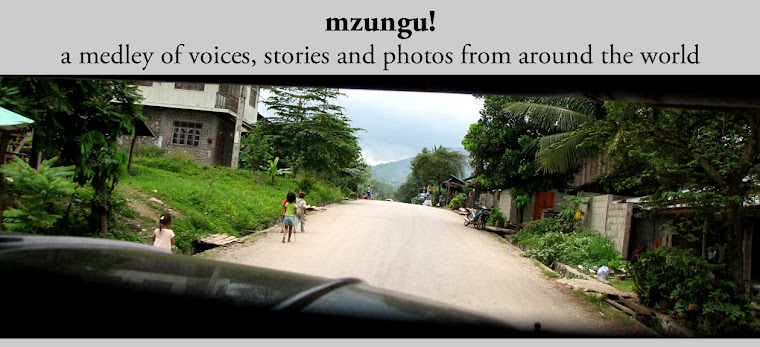NP: Oh, you're a grad student! What are you studying?
AB: I'm doing a dual master's in journalism and ethnomusicology [always "journalism" first so people get through that before being tripped up].
NP: Ethno... what?
AB: Ethno.music.ology. It's like a combination of music and anthropology.
NP: Right, anthropolani.
AB: Um, like the study of music in culture.
NP: Oh, ok. And journalism. Well that's an... interesting... combination. What do you plan to do with that?
AB: Well [see previous blog post], I'll find out in three years...
It's a peculiar feeling to devote myself to a discipline (or idea) that most people have never heard of before. They can't say, "Right on, ethnomusicology. My great aunt Bertha was a ethnomusicologist. One day she..."
It's even more disconcerting when that discipline doesn't even know what to call itself. I just read an article titled, "Ethnomusicology, Alterity, and Disciplinary Identity; or, 'Do We Still Need an Ethno-?' 'Do We Still Need an -ology?'" Scholars say maybe we're actually all musicologists. Or maybe we truly belong in anthropology. Or maybe just "music scholars." I wrote in the margins, "And we take ourselves way too seriously." Some of this writing is so convoluted it's like reading words through the church potluck fruit Jell-O. If I ever wrote like that for a newspaper article, I think I'd be fired.
So who are we, anyway, these so-called (ethno)(music)(ologists)? Let me take a stab:
- We study how music is used in cultures.
- We do a lot of research--usually first-hand, primary information gathering--in places that we find interesting (sometimes a foreign country, sometimes home communities).
- We are not necessarily musicians. We can spew out a great deal of theory on musical practices, but don't ask us to actually perform them. That said, many do learn new instruments and styles in the process.
- An example: if you say you like folk music, an ethnomusicologists might ask, "Who (what?) are (is?) the 'folk'? What prompted the emergence of this music? Who practices it and why? What impact does folk music have on the way people think about politics or religion?" The questions could go on and on.
- I'm interested in two major areas: medical ethnomusicology (health and healing with music, especially in the HIV/AIDS crises) and applied ethnomusicology (working outside academia and using my knowledge and skills to help people, otherwise known as advocacy).
- I want to research in, I think, Uganda (where I lived in 2006).
- The journalism angle gives me practical skills in addition to the more theoretical and prepares me to, say, write for an arts column or create documentaries on musical practices.


